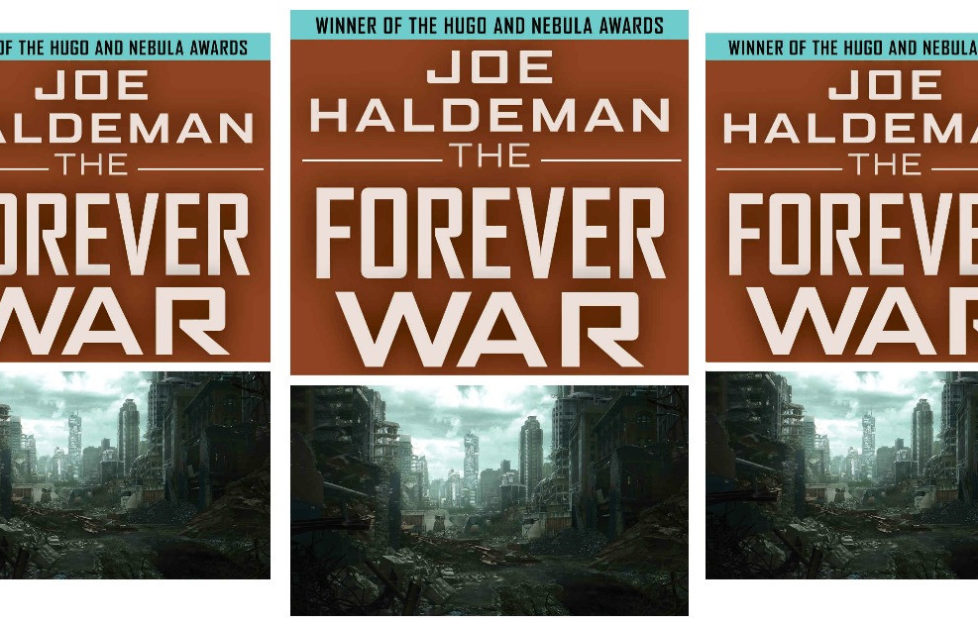
I have a confession to make. I read a lot of sci-fi stories, but I’d never attempted “The Forever War” series until recently.
It had been recommended to me many times by other die-hard fans. But the sheer size of it (the series consists of three novels — “The Forever War”, “Forever Free” and “Forever Peace” — which were collected into one handy book when I bought them) put me off.
Did I have the time to sit down and dedicate to it?
Well, it turns out long commutes to work are good for something . . .
The novel is set in what was then the future time of 1997 (it was first published in 1974), and follows physics student William Mandela, who is conscripted into an interplanetary military force in order to fight a coming war with an alien race.
While the descriptions of the gruelling training regime he is put through — and the eventual, violent encounters with the aliens — are fairly standard fare for science fiction, the effects of these events are treated in much more detail. And they are much more interesting.
Hypnosis, murder, and time dilation
We’re told early on that Mandela and his squad mates go through more than just simple drills.
Soldiers aren’t just trained, they are conditioned to fight, through an almost scientific-hypnotic process. They become weapons themselves, so that when they discover a defenceless group of aliens, they murder them almost reflexively.
They cannot help but act in the way in which they were instructed. This raises some interesting moral and ethical issues with militarism. But it’s just the beginning.
The most fascinating effect of this interstellar conflict, for me, is that of the time dilation involved in travelling over vast distances.
Simply, this means that time passes differently for the soldiers than it does for the universe around them.
For example, an extended “chase” scene between an Earth ship and an alien takes mere hours from Mandella’s point of view. But from the point of view of those back home, years pass.
A different world
Because of this quirk of physics, the war has been raging for a number of years while the protagonist and his squad have been travelling. And by the time they arrive at their intended target, a peace has been agreed.
This leaves a group of mentally manipulated, trained killers suddenly without purpose.
Worse, when they finally return to Earth, they find that in the intervening years (more than 20) the world has changed into an almost unrecognisable place, with different customs, attitudes, and a shared history that they have no experience of.
They are ostracised (sometimes deliberately, even by their surviving family, and sometimes passively — which somehow seems worse).
A peace treaty and a closer relationship with the aliens even means their sacrifices are largely unacknowledged.
Joe Haldeman’s novel was released shortly after the conclusion of the Vietnam War, and it’s hard not to see the connection with the way some veterans were treated.
Ultimately they feel so isolated, the entire group chooses to leave again, and live on a completely separate world. (They dub their new home “Middle Finger”, in a fit of almost teenage rebellion).
That’s where this series of novels catches my attention. Not in aliens and spaceships and all of that, but in the way that it addresses the terrible social and societal effects of war.
The ending
Stop before the end. It’s nuts. I presume the author had had enough!
For more book reviews from the “Friend” team, click here.




